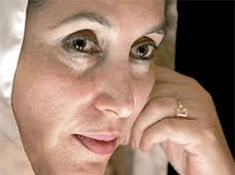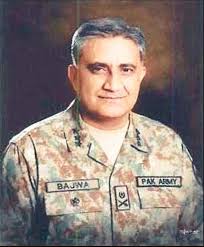Who is behind the Karachi bus attack?

ISLAMABAD: (The News) Besides trying to determine the involvement of the Tehrik-e-Taliban Pakistan (TTP) and Lashkar-e-Jhangvi in the terrible butchery of 45-plus innocent people belonging to the Ismaili community in Karachi, the security agencies are trying to find out if the barbaric incident has anything to do with the recently concluded by-election in the port city for NA-246.
According to highly-informed sources in security agencies, the Lashkar-e-Jhangvi footprints had been found in a previous terror attack in Karachi [in August 2013] when the Aga Khan Jamaat Khana situated on main Shahra-e-Pakistan in Karachi was attacked, killing two members of the Ismaili community and injuring 40 others.
The incident took place in the Ayesha Manzil area in Gulberg on August 13, 2013 when some unidentified motorcyclists had thrown explosive material inside the Aga Khan Jamaat Khana while prayers were being offered. Six months later, in February 2014, the Tehrik-e-Taliban had announced an armed struggle against the Ismailis living in the Kalash Valley of Chitral.
Therefore, the investigating agencies believe the LeJ and the TTP are among the prime suspects in the bus butchery. Two more jehadi groups being suspected for involvement in the dastardly episode are the Islamic State or Daesh and Jundallah.
There are reports that a Daesh pamphlet was recovered from the crime scene that was possibly dropped by the attackers who were dressed in police uniforms. Ahmed Marwat, the spokesman for Jundallah, has also claimed responsibility for the attack, saying: “We will continue targeting infidels”. But the fact is that the Jundallah spokesman is known for making quick responsibility claims for almost every other terror attack. The al-Qaeda affiliated group that started off from South Waziristan has claimed several attacks against Shias and foreign tourists in the past. In November 2014, Jundallah pledged allegiance to Abu Bakar Al Baghdadi-led IS after holding a clandestine meeting with a Daesh delegation somewhere in Quetta.
Significantly, the carnage of the Ismaili community members took place hardly a day after the hanging of Saulat Mirza. To tell the truth, Mohammad Ali Jinnah’s vision of a democratic Pakistan has clearly been eclipsed by a rising spiral of sectarian terrorism in the country which seems to have assumed alarming heights in the wake of the killing of 45 members of the Ismaili community. Pakistan has been in the grip of terrorist and sectarian violence for many decades now. Those who see this as the most serious existential threat to the country are alarmed by the rising dark tide of fanaticism that threatens to destroy the state and the society and turn it into an oppressive theocracy with the narrowest of interpretations of religion.
http://www.thenews.com.pk/Todays-News-13-37466-Who-is-behind-the-Karachi-bus-attack




